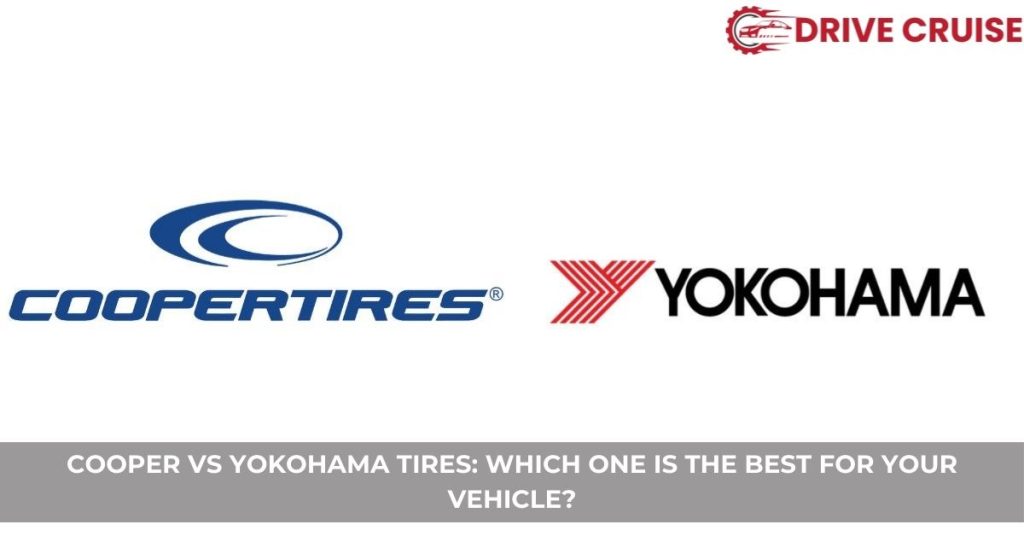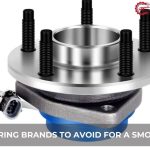When it comes to equipping our vehicles with the best tires, the decision often boils down to a few top contenders. Among them, Cooper and Yokohama stand out as brands that promise reliability, durability, and performance. But how do we decide which one is the better fit for our cars and driving needs?
We’ve all been there, staring at rows of tires in a shop, wondering if we’re making the right choice. It’s not just about the tread pattern or the price tag; it’s about understanding what each brand brings to the table. In our quest to demystify this choice, we’ll dive into the world of Cooper vs. Yokohama tires, exploring their strengths and how they stack up against each other.
Our journey will take us through key aspects that influence tire selection, from all-season capabilities to off-road readiness. So, buckle up as we navigate the road of tire comparison, ensuring your next tire purchase is as informed as it is straightforward.
Cooper vs Yokohama Tires: An Overview
Delving deeper into the heart of our comparison, it’s crucial we look closely at what Cooper and Yokohama bring to the table. Both brands carry a storied legacy, with Cooper originating in the United States in 1914 and Yokohama hailing from Japan since 1917. This long history in the tire industry suggests both companies know a thing or two about producing tires that can handle a variety of driving conditions.
Cooper tires are renowned for their affordability without compromising on quality. They offer an impressive selection of tires for passenger cars, trucks, and SUVs, focusing on comfort, longevity, and all-season performance. Cooper’s leading lines, such as the Discoverer and Evolution series, are celebrated for their durability and off-road capabilities, appealing to drivers seeking adventure without breaking the bank.
Yokohama, on the other hand, shines with its technological advancements and innovative approach to tire manufacturing. Yokohama’s tires are a testament to their engineering prowess, particularly noted in their AVID, Geolandar, and BluEarth series. They excel in providing enhanced fuel efficiency, superior traction, and extreme precision in handling, catering to both everyday drivers and motorsport enthusiasts. Their commitment to innovation is also evident in their use of environmentally friendly materials, appealing to the eco-conscious driver.
When comparing both, one might consider Cooper for its value-driven approach and robustness in off-road situations, whereas Yokohama stands out for its advanced technology and performance-driven designs. Each brand has mastered different terrains and driving needs, making the choice between them a matter of personal preference, driving style, and budget considerations. Whether it’s the rugged reliability of Cooper tires or the high-tech precision of Yokohama tires, our goal is to ensure you’re equipped with all the necessary information to make the best choice for your vehicle.
Performance Comparison
In assessing the performance of Cooper versus Yokohama tires, we examine their grip, durability under various driving conditions, and overall driving experience. Here, we align performance specs with drivers’ expectations to ensure they make a choice that suits their needs seamlessly.
Grip and Handling
- Cooper: Known for their excellent traction, Cooper tires often perform exceptionally well on wet and dry surfaces, making them a solid choice for everyday driving. Their off-road designs, specifically, offer remarkable grip on rugged terrains, attributing to deep treads and specialized rubber compounds.
- Yokohama: Yokohama tires excel in precision handling and stability, especially at high speeds. Their advanced tread patterns and rubber compositions deliver superior grip on both dry and wet roads, enhancing the safety and performance of sports and luxury vehicles.
Durability and Wear
- Cooper: Cooper tires are celebrated for their durability, offering long tread life especially in tough driving conditions. The brand’s emphasis on robust construction means their tires can withstand the challenges of off-roading without significant wear.
- Yokohama: With a commitment to technological innovation, Yokohama’s tires incorporate features like micro-flexible compound technology, which not only improves grip but also contributes to even wear and extended tire life, even under intense driving conditions.
- Cooper: Drivers frequently commend Cooper tires for their comfortable ride quality. The tires’ design focuses on reducing road noise and providing a smooth driving experience, particularly for SUVs and trucks.
- Yokohama: Yokohama tires are renowned for enhancing the driving experience by offering exceptional handling and responsiveness. Their tires, designed with advanced technology, ensure a quieter, more comfortable ride, appealing to drivers of performance and luxury vehicles.
Ultimately, the choice between Cooper and Yokohama tires hinges on specific performance attributes drivers value most. Whether prioritizing off-road durability and comfort with Cooper or the advanced technology and superior handling of Yokohama, both brands offer compelling options tailored to diverse driving demands and preferences.
Price and Value for Money
Transitioning from the performance comparison, let’s focus on the financial aspect of choosing between Cooper and Yokohama tires. It’s crucial to not only consider the upfront costs but also the long-term value each brand provides.
Cooper tires are generally recognized for delivering solid performance at a more accessible price point. Many drivers find Cooper tires to offer excellent value, especially when prioritizing durability and off-road capabilities. For those on a budget or looking to get the most bang for their buck without sacrificing performance, Cooper stands out. The brand’s offerings usually come with competitive warranties and a reputation for long tread life, ensuring drivers get a good return on their investment.
On the other hand, Yokohama tires may carry a higher initial cost, but for a good reason. The brand invests significantly in research and development to incorporate advanced technologies and environmentally friendly practices into their products. Yokohama tires often feature innovative designs focused on reducing fuel consumption, enhancing grip, and extending tire life, which may translate to cost savings over time. The higher price tag is justified by the superior handling, stability, and cutting-edge features Yokohama provides, appealing to drivers who value technological advancements and eco-friendliness in their tire choices.
Ultimately, the decision between Cooper and Yokohama hinges on individual priorities. If upfront costs and rugged performance are top concerns, Cooper offers an excellent value proposition. Conversely, drivers willing to invest a bit more for technological innovation and environmental consideration will find Yokohama tires to meet their needs effectively. Each brand presents a compelling case, ensuring drivers can select the best option that aligns with their budget and driving demands.
Environmental Impact
Transitioning seamlessly from the financial implications, it’s vital to consider the environmental perspective when comparing Cooper and Yokohama tires. Both brands demonstrate a commitment to sustainability, but their approaches and achievements in this realm vary significantly.
Turning our focus to Cooper Tires first, they have made strides in reducing their ecological footprint through the implementation of energy-efficient manufacturing processes. Cooper Tire is actively involved in initiatives aimed at reducing waste and increasing recycling within their plants. Additionally, the company is working towards developing tires that are more fuel-efficient, contributing to reduced carbon emissions for vehicles.
On the other side, Yokohama takes an even more pronounced eco-friendly stance. Yokohama has been a pioneer in utilizing orange oil in their tires, a revolutionary technology that reduces petroleum usage. This innovation not only exemplifies Yokohama’s dedication to sustainability but also enhances tire performance by improving grip without sacrificing durability. Furthermore, Yokohama is committed to achieving a zero-emission operation, with their factories employing advanced methods to minimize environmental impact. Their aggressive goals for reducing CO2 emissions and promoting sustainability in all facets of their operation underscore their position as an environmental leader in the tire industry.
Both Cooper and Yokohama show a clear dedication to preserving the environment, yet they embark on this journey with differing strategies. Cooper focuses on improving manufacturing efficiency and enhancing tire performance to contribute to greater fuel efficiency. Meanwhile, Yokohama integrates cutting-edge technologies and renewable materials, like orange oil, into their products, marking a significant advancement in eco-friendly tire solutions. This dedication to environmental stewardship ensures that regardless of whether drivers choose Cooper or Yokohama, they’re making a choice that benefits not just their vehicles, but the planet as well.
Customer Satisfaction and Reviews
Following our in-depth comparison on performance, cost, and environmental impact, we dive into customer satisfaction and reviews to see how Cooper and Yokohama tires stand up in the eyes of those who use them daily. Customer opinions offer invaluable insights, bridging the gap between technical specifications and real-world application.
Users frequently praise Cooper tires for their durability and value for money, highlighting their performance in challenging conditions such as snow and mud. Reviews often mention Cooper’s Discoverer AT3 as a standout, appreciating its off-road capability alongside comfortable ride quality on highways. Cooper customers tend to be loyal, citing the brand’s warranty and customer service support as reasons for their continued patronage.
On the other hand, Yokohama garners accolades for its advancements in tire technology, offering superior handling and fuel efficiency. Fans of Yokohama point to models like the AVID Ascend GT for its quiet ride and exceptional traction on wet surfaces. Reviews often applaud the brand for its innovative use of environmentally friendly materials, resonating with eco-conscious drivers. Yokohama enthusiasts appreciate the brand’s commitment to performance and sustainability, even if it comes at a higher price point.
Through customer reviews, it becomes apparent that satisfaction with Cooper or Yokohama tires hinges on what drivers value most. Those seeking reliable, cost-effective tires for diverse driving conditions lean towards Cooper. Conversely, drivers prioritizing cutting-edge technology, superior handling, and eco-friendly options tend to favor Yokohama. Regardless of preference, both brands receive high marks for their quality, innovation, and dedication to customer satisfaction, ensuring there’s a tire choice that meets every driver’s needs.
Conclusion
Choosing between Cooper and Yokohama tires boils down to what matters most to us as drivers. If we’re seeking value for money and tires that can bravely tackle off-road challenges or harsh weather conditions, Cooper’s got our back. Their proven durability and supportive customer service make them a solid choice for those of us watching our budgets closely.
For those of us who prioritize advanced technology, superior handling, especially at high speeds, and a commitment to sustainability, Yokohama steps up to the plate. Their focus on innovation and eco-friendly materials cater to the environmentally conscious among us, offering peace of mind along with performance.
Ultimately both brands stand out for their quality and customer satisfaction. Whether we lean towards Cooper’s rugged reliability and cost-effectiveness or Yokohama’s technological edge and environmental stewardship, we’re making a choice that won’t let us down.
Related Posts:











